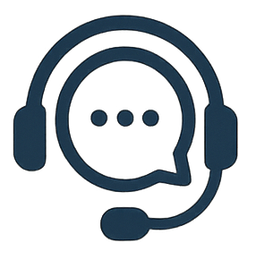The landscape of customer service is rapidly evolving, particularly in the hospitality industry, where guest expectations are sky-high and continually on the rise. Businesses in the hospitality sector must be attuned to the latest benchmarks in customer service to remain competitive. These benchmarks serve as a crucial guide for ensuring exceptional guest experiences, fostering customer loyalty, and enhancing company reputations. In this article, we'll explore key customer service benchmarks for the hospitality industry, drawing from cutting-edge trends and expert insights to provide a comprehensive outlook.
Embracing Technology-Driven Customer Interactions
By 2025, technology will play an even more pivotal role in shaping customer service experiences within the hospitality industry. From AI-driven chatbots to smart room controls, technological advancements are setting new service standards. Hotels, for instance, are increasingly implementing AI to manage guest inquiries, streamline check-ins, and offer personalized recommendations based on guest preferences. Such technologies not only improve efficiency but also enhance the overall guest experience by providing timely and accurate responses, thereby setting a new benchmark for customer satisfaction.
Consider a scenario where a guest arrives at a hotel after a long journey. An AI-driven service kiosk quickly processes their check-in, while a smart app on their phone allows them to control room settings such as temperature and lighting to their preference—all without the need for front-desk assistance. This level of seamless service interaction is what guests will come to expect as the standard.
Personalization as a Core Customer Service Strategy
The demand for personalized experiences is increasingly becoming a central aspect of customer service in the hospitality industry. Personalized service interactions will be a primary benchmark for assessing successful customer service in hospitality venues. Hotels and resorts are now harnessing data analytics to gather insights into guest preferences, past behaviors, and feedback to tailor services more effectively.
For example, if a guest has a history of ordering vegetarian meals and booking yoga sessions, a hotel might preemptively offer similar meal options and wellness packages upon their next booking. Such personalized service not only enhances the guest experience but also fosters a deeper connection between the guest and the brand, setting a new benchmark for customer loyalty and satisfaction.
Implementing Omni-Channel Customer Support
The hospitality industry in 2025 will witness a significant shift towards providing omni-channel customer support. This means guests can expect consistent and seamless service across multiple platforms—be it via social media, mobile apps, phone calls, or in-person interactions. Establishing a cohesive omni-channel experience ensures that customer queries and issues are resolved efficiently, no matter how a guest chooses to interact with a service provider.
For instance, a guest might begin their hotel booking experience on a company website, continue on a mobile app, and finalize details via a social media chatbot. With integrated systems, the guest's preferences and booking information are consistently carried across all platforms, showcasing a benchmark in providing fluid and lush customer service experiences.

Focusing on Sustainability and Ethical Practices
As sustainability becomes a growing concern globally, customer service benchmarks in the hospitality industry are set to evolve by integrating eco-friendly practices and ethical business operations as part of the service ethos. By 2025, many guests will not only expect but demand transparency about sustainable practices and ethical standards from their hospitality service providers.
Hotels and resorts that implement programs to reduce water usage, cut down on single-use plastics, and support local communities are likely to be favored by environmentally conscious travelers. Offering guests options to participate in green initiatives—such as choosing not to have their towels laundered daily—serves both as a cost-saving and a service refinement strategy, aligning with the latest customer service expectations.
Training and Empowering Staff for Superior Service
Notwithstanding technological advancements, the essence of exceptional customer service in the hospitality industry remains deeply rooted in human interaction. By 2025, a key benchmark will be the empowerment and ongoing training of staff to deliver superior customer service. This entails equipping staff with the skills and autonomy needed to make real-time decisions that positively impact guest experiences.
An empowered staff member who can swiftly resolve an unexpected issue—such as a room mix-up or an overbooked reservation—demonstrates a company's commitment to high-quality customer service. Investment in continuous professional development and training programs ensures that staff are not only motivated but also equipped to meet and exceed diverse guest expectations.
Conclusion
As the hospitality industry, customer service benchmarks will continually evolve with technology, personalization, and sustainability at the forefront. Embracing these changes and integrating them into core business strategies will be key for maintaining a competitive advantage. By focusing on technology-driven interactions, personalized experiences, omni-channel support, ethical practices, and empowered staff, hospitality businesses can elevate their customer service standards and ensure a memorable, satisfying experience for each of their guests. Keeping abreast of these benchmarks will be vital for any hospitality business aiming to thrive in the dynamic landscape of the near future.








